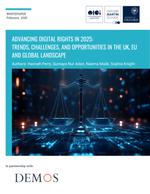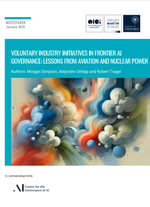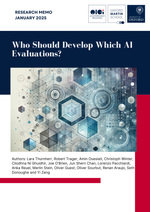Claire Dennis,* Stephen Clare, Rebecca Hawkins, Morgan Simpson, Eva Behrens, Gillian Diebold, Zaheed Kara, Ruofei Wang, Robert Trager, Matthijs Maas, Noam Kolt, Markus Anderljung, Konstantin Pilz, Anka Reuel, Malcolm Murray, Lennart Heim, Marta Ziosi. Please cite as: "Dennis, C. et al. (2024). 'What Should Be Internationalised in AI Governance?' Oxford Martin AI Governance Initiative."
View Policy PaperAs artificial intelligence (AI) advances, states increasingly recognise the need for international governance to address shared benefits and challenges. However, international cooperation is complex and costly, and not all AI issues require cooperation at the international level. This paper presents a novel framework to identify and prioritise AI governance issues warranting internationalisation. We analyse nine critical policy areas across data, compute, and model governance using four factors which broadly incentivise states to internationalise governance efforts: cross-border externalities, regulatory arbitrage, uneven governance capacity, and interoperability. We find strong benefits of internationalisation in compute-provider oversight, content provenance, model evaluations, incident monitoring, and risk management protocols. In contrast, the benefits of internationalisation are lower or mixed in data privacy, data provenance, chip distribution, and bias mitigation. These results can guide policymakers and researchers in prioritising international AI governance efforts.





